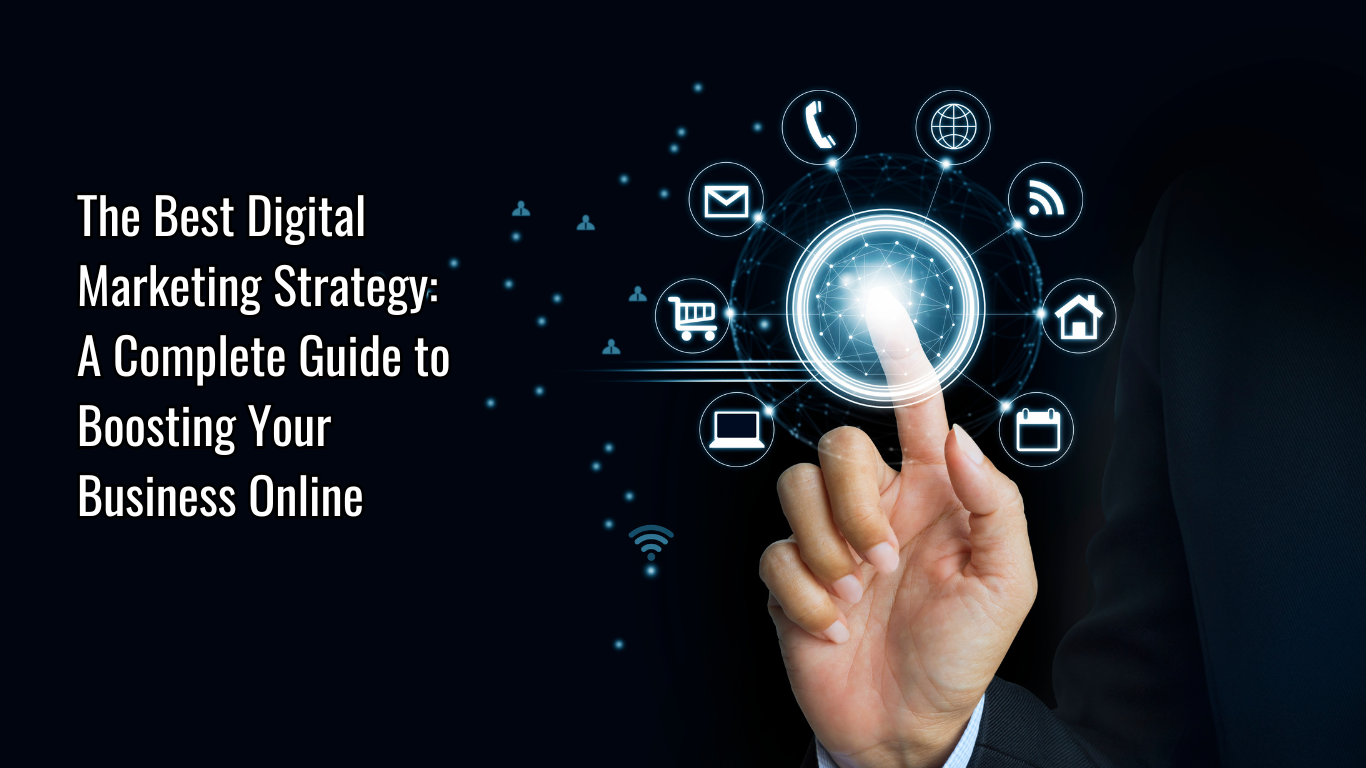
- aliseopro6
- Comments 0
- 28 Mar 2025
In today’s digital age, having a strong online presence isn’t just an option—it’s essential for business success. This comprehensive guide will walk you through the most effective digital marketing strategies to help your business thrive in the online marketplace.
Why Your Business Needs a Digital Marketing Strategy
Having a well-defined digital marketing strategy is crucial because:
- It helps you reach potential customers where they spend most of their time—online
- Enables effective communication of your brand’s message
- Provides measurable results and ROI
- Allows you to compete effectively in your market
- Helps build lasting relationships with your audience
Essential Components of an Effective Digital Marketing Strategy
1. Search Engine Optimization (SEO)
The Foundation of Online Visibility
SEO remains one of the most powerful tools in your digital marketing arsenal. Here’s how to make it work for you:
Key SEO Tactics:
- Keyword Research: Use tools like Google Keyword Planner and Ahrefs to identify high-value search terms
- On-Page Optimization: Optimize your website’s technical elements:
- Title tags
- Meta descriptions
- Header tags
- Image alt text
- Quality Content Creation: Develop content that answers your audience’s questions
- Link Building: Build authority through quality backlinks
💡 Pro Tip: Focus on long-tail keywords for better conversion rates and less competition.
2. Content Marketing
Engaging Your Audience with Value
Content marketing is the art of creating and sharing valuable content to attract and retain customers.
Effective Content Types:
- Blog posts
- Video content
- Infographics
- Ebooks and whitepapers
- Case studies
- Podcasts
Best Practices:
- Create content that solves specific problems
- Maintain a consistent publishing schedule
- Focus on quality over quantity
- Optimize for search engines
- Include clear calls-to-action
3. Social Media Marketing
Building Community and Engagement
Social media is essential for brand building and customer engagement.
Platform Strategy:
- Instagram: Visual content and stories
- LinkedIn: B2B networking and thought leadership
- Facebook: Community building and advertising
- Twitter: Real-time engagement and news
- TikTok: Short-form video content
Key Activities:
- Regular posting schedule
- Engagement with followers
- User-generated content campaigns
- Social listening
- Paid advertising
4. Email Marketing
Nurturing Customer Relationships
Email marketing remains one of the most effective channels for ROI.
Essential Elements:
- List Segmentation: Group subscribers based on:
- Demographics
- Behavior
- Purchase history
- Engagement level
- Personalization: Customize content for different segments
- Automation: Set up trigger-based emails:
- Welcome series
- Abandoned cart recovery
- Post-purchase follow-up
- Re-engagement campaigns
5. Pay-Per-Click (PPC) Advertising
Driving Immediate Results
PPC advertising offers quick results and precise targeting capabilities.
Key Platforms:
- Google Ads
- Facebook Ads
- Instagram Ads
- LinkedIn Ads
Best Practices:
- Set clear campaign objectives
- Use targeted keywords
- Create compelling ad copy
- Test different ad formats
- Monitor and optimize performance
6. Influencer Marketing
Leveraging Trust and Reach
Influencer marketing can help you reach new audiences through trusted voices.
Strategy Elements:
- Identify relevant influencers
- Choose appropriate collaboration types:
- Sponsored posts
- Product reviews
- Brand ambassadorships
- Co-created content
- Track performance metrics
7. Conversion Rate Optimization (CRO)
Maximizing Your Results
CRO helps you get more value from your existing traffic.
Key Focus Areas:
- Landing page optimization
- A/B testing
- User experience improvement
- Call-to-action optimization
- Form optimization
Implementation Guide
Step 1: Strategy Development
- Set clear, measurable goals
- Define your target audience
- Conduct competitor analysis
- Establish your budget
- Choose appropriate channels
Step 2: Content Planning
- Create a content calendar
- Define your brand voice
- Plan your content mix
- Set up tracking systems
Step 3: Execution
- Launch campaigns systematically
- Monitor performance
- Engage with your audience
- Adjust tactics as needed
Step 4: Analysis and Optimization
- Track key metrics
- Analyze results
- Make data-driven decisions
- Optimize campaigns
Measuring Success
Track these key metrics:
- Website traffic
- Conversion rates
- Engagement rates
- Email open rates
- Social media growth
- ROI per channel
Conclusion
The best digital marketing strategy is one that:
- Aligns with your business goals
- Reaches your target audience effectively
- Provides measurable results
- Allows for continuous optimization
Remember that digital marketing is not a one-size-fits-all solution. Test different approaches, measure your results, and continuously refine your strategy based on what works best for your business.
Ready to take your digital marketing to the next level? Start by implementing these strategies one at a time, measuring results, and scaling what works best for your business.
Recent Comments